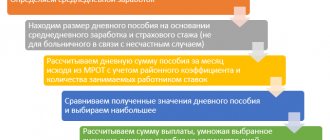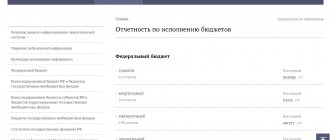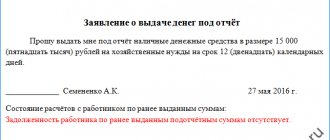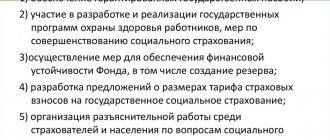Do they have the right to withhold debts from disability payments?
The problem of growing debts concerns different segments of the population, including people with disabilities; some people think that Russian legislation will not allow collecting a debt from a pension or benefit paid to a disabled person. But not everything is so simple here; enforcement proceedings can also be initiated against a disabled person. It depends on the type of income he receives.
❌ Payments not subject to recovery under a writ of execution
According to clause 1 of Article 101 “Types of income that cannot be levied against,” such income includes:
- Social disability pension . Assigned to citizens living in the territory of the Russian Federation who, due to various facts, cannot carry out labor activities, as well as those who do not have the necessary work experience for the assignment of an insurance pension.
- State disability pension . This benefit is assigned and paid to military personnel who received injuries (wounds, injuries, concussions) during the performance of their official duties, and members of their families in the event of the death of these persons, as well as citizens injured as a result of radiation or man-made disasters, participants in the Great Patriotic War war, citizens awarded the sign “Resident of besieged Leningrad”, cosmonauts. Such payments are not subject to penalty under a writ of execution.
- EDV . Monthly and annual cash payments that are paid to disabled people in exchange for compensation for travel, purchase of medicines, etc.
- Payments for caring for a disabled person . The amount of benefits for caring for a disabled person of group 1 in 2021 is 1200 rubles; for parents of disabled children, the benefit amount is 10,000 rubles.
- Compensation for travel to the place of treatment.
Increasing the amount of maternity capital in 2021 and new features of its receipt
To know
When can bailiffs withhold funds from a debtor’s pension and in what amounts, we will tell you using an example from judicial practice
To know
✅ Income that may be subject to recovery
Withholding for the payment of arrears under a writ of execution may be imposed on a disability insurance pension, including a fixed payment with all increases.
Do bailiffs have the right to withhold 50% of the pension of a group 1 disabled person?
Yes. Quote: Article 37 of the Federal Law “On Enforcement Proceedings” dated October 2, 2007 N 229-FZ. Granting a deferment or installment plan for the execution of judicial acts, acts of other bodies and officials, changing the method and procedure for their execution 1. The claimant, debtor, bailiff has the right to apply for a deferment or installment plan for the execution of a judicial act, act of another body or official , as well as about changing the method and procedure for its execution to the court, another body or to the official who issued the executive document. 2. If the debtor is granted a deferment in the execution of a judicial act, an act of another body or official, enforcement actions are not performed and enforcement measures are not applied within the period established by the court, other body or official that granted the deferment. 3. If the debtor is granted an installment plan for the execution of a judicial act, an act of another body or official, the executive document is executed in that part and within the time limits established in the act on granting the installment plan. Article 99 of the Federal Law “On Enforcement Proceedings” dated October 2, 2007 N 229-FZ. The amount of deduction from wages and other income of the debtor and the procedure for its calculation 1. The amount of deduction from wages and other income of the debtor, including from remuneration to the authors of the results of intellectual activity, is calculated from the amount remaining after withholding taxes 2. When executing a writ of execution ( several executive documents) no more than fifty percent of wages and other income may be withheld from a debtor-citizen. Withholdings are made until the requirements contained in the executive document are fulfilled in full. Sincerely, Mikhailovsky Yuri Iosifovich. urist-prava. My YouTube channel: https://goo.gl/Crfv3z
You may like => Supplement for disabled people 1g and persons over 80 years old
Hello! A lawyer from this site gave me this answer. Article 69 of the Federal Law “On Enforcement Proceedings” imposes a restriction on the foreclosure of certain sums of money. The following funds are not subject to foreclosure: • compensation for harm caused to health; • compensation for damage resulting from the death of the breadwinner; • for the birth of a child (maternity capital); • payments to mothers of many children; • payments for injuries received, mutilation, wounds, etc. in the performance of official duties; • benefits for single mothers or fathers; • payments to disabled people of the first group and pensioners; • alimony obligations; • for additional nutrition, prosthetics, sanatorium and resort treatment in case of harm to health; • payments for work under hazardous working conditions; • benefits to citizens exposed to radiation as a result of an accident or disaster at a nuclear power plant; • payments for work in extreme conditions; • severance pay upon dismissal of an employee; • financial assistance and payments to the organization accrued to the employee in connection with the registration of marriage, the birth of a child, the death of relatives
Article 101. Types of income that cannot be levied 1. The following types of income cannot be levied: 1) sums of money paid in compensation for harm caused to health; 2) sums of money paid in compensation for damage in connection with the death of the breadwinner; 3) sums of money paid to persons who received injuries (wounds, injuries, concussions) in the performance of their official duties, and members of their families in the event of the death of these persons; 4) compensation payments from the federal budget, budgets of constituent entities of the Russian Federation and local budgets to citizens affected by radiation or man-made disasters; 5) compensation payments from the federal budget, budgets of constituent entities of the Russian Federation and local budgets to citizens in connection with caring for disabled citizens; 6) monthly cash payments and (or) annual cash payments accrued in accordance with the legislation of the Russian Federation to certain categories of citizens (compensation for travel, purchase of medicines, etc.); 7) amounts of money paid as alimony, as well as amounts paid for the maintenance of minor children during the search for their parents; compensation payments established by the labor legislation of the Russian Federation: a) in connection with a business trip, transfer, admission or assignment to work in another locality; b) due to wear and tear of a tool belonging to the employee; c) sums of money paid by the organization in connection with the birth of a child, the death of relatives, and the registration of marriage; 9) insurance coverage for compulsory social insurance, with the exception of old-age pensions, disability pensions and temporary disability benefits; 10) pensions in case of loss of a breadwinner, paid from the federal budget; 11) payments to pensions in the event of the loss of a breadwinner from the budgets of the constituent entities of the Russian Federation; 12) benefits to citizens with children, paid from the federal budget, state extra-budgetary funds, budgets of constituent entities of the Russian Federation and local budgets; 13) funds of maternity (family) capital provided for by Federal Law of December 29, 2006 N 256-FZ “On additional measures of state support for families with children”; 14) the amount of one-time financial assistance paid from the federal budget, budgets of constituent entities of the Russian Federation and local budgets, extra-budgetary funds, from funds of foreign states, Russian, foreign and interstate organizations, other sources: a) in connection with a natural disaster or other emergency circumstances; b) in connection with a terrorist act; c) in connection with the death of a family member; d) in the form of humanitarian aid; e) for providing assistance in identifying, preventing, suppressing and solving terrorist acts and other crimes; 15) the amount of full or partial compensation for the cost of vouchers, with the exception of tourist ones, paid by employers to their employees and (or) members of their families, disabled people not working in this organization, to sanatorium-resort and health-improving institutions located on the territory of the Russian Federation, as well as amounts full or partial compensation of the cost of vouchers for children under the age of sixteen to sanatorium-resort and health-improving institutions located on the territory of the Russian Federation; 16) the amount of compensation for the cost of travel to the place of treatment and back (including the accompanying person), if such compensation is provided for by federal law; 17) social benefit for funeral.
2) sums of money paid in compensation for damage in connection with the death of the breadwinner; 3) sums of money paid to persons who received injuries (wounds, injuries, concussions) in the performance of their official duties, and members of their families in the event of the death of these persons; 4) compensation payments from the federal budget, budgets of constituent entities of the Russian Federation and local budgets to citizens affected by radiation or man-made disasters; 5) compensation payments from the federal budget, budgets of constituent entities of the Russian Federation and local budgets to citizens in connection with caring for disabled citizens; 6) monthly cash payments and (or) annual cash payments accrued in accordance with the legislation of the Russian Federation to certain categories of citizens (compensation for travel, purchase of medicines, etc.); 7) amounts of money paid as alimony, as well as amounts paid for the maintenance of minor children during the search for their parents; compensation payments established by the labor legislation of the Russian Federation: a) in connection with a business trip, transfer, admission or assignment to work in another locality; b) due to wear and tear of a tool belonging to the employee; c) sums of money paid by the organization in connection with the birth of a child, the death of relatives, and the registration of marriage; 9) insurance coverage for compulsory social insurance, with the exception of old-age pensions, disability pensions and temporary disability benefits; 10) pensions in case of loss of a breadwinner, paid from the federal budget; 11) payments to pensions in the event of the loss of a breadwinner from the budgets of the constituent entities of the Russian Federation; 12) benefits to citizens with children, paid from the federal budget, state extra-budgetary funds, budgets of constituent entities of the Russian Federation and local budgets; 13) funds of maternity (family) capital provided for by Federal Law of December 29, 2006 N 256-FZ “On additional measures of state support for families with children”; 14) the amount of one-time financial assistance paid from the federal budget, budgets of constituent entities of the Russian Federation and local budgets, extra-budgetary funds, from funds of foreign states, Russian, foreign and interstate organizations, other sources: a) in connection with a natural disaster or other emergency circumstances; b) in connection with a terrorist act; c) in connection with the death of a family member; d) in the form of humanitarian aid; e) for providing assistance in identifying, preventing, suppressing and solving terrorist acts and other crimes; 15) the amount of full or partial compensation for the cost of vouchers, with the exception of tourist ones, paid by employers to their employees and (or) members of their families, disabled people not working in this organization, to sanatorium-resort and health-improving institutions located on the territory of the Russian Federation, as well as amounts full or partial compensation of the cost of vouchers for children under the age of sixteen to sanatorium-resort and health-improving institutions located on the territory of the Russian Federation; 16) the amount of compensation for the cost of travel to the place of treatment and back (including the accompanying person), if such compensation is provided for by federal law; 17) social benefit for funeral.
You may like => Compensation of parental fees for kindergarten in the Moscow region 2021
Here is the most important thing that the Supreme Court emphasized: money under this law is included in the material support of disabled people and is not a pension, despite the fact that the payment is established and paid by the territorial body of the Pension Fund.










